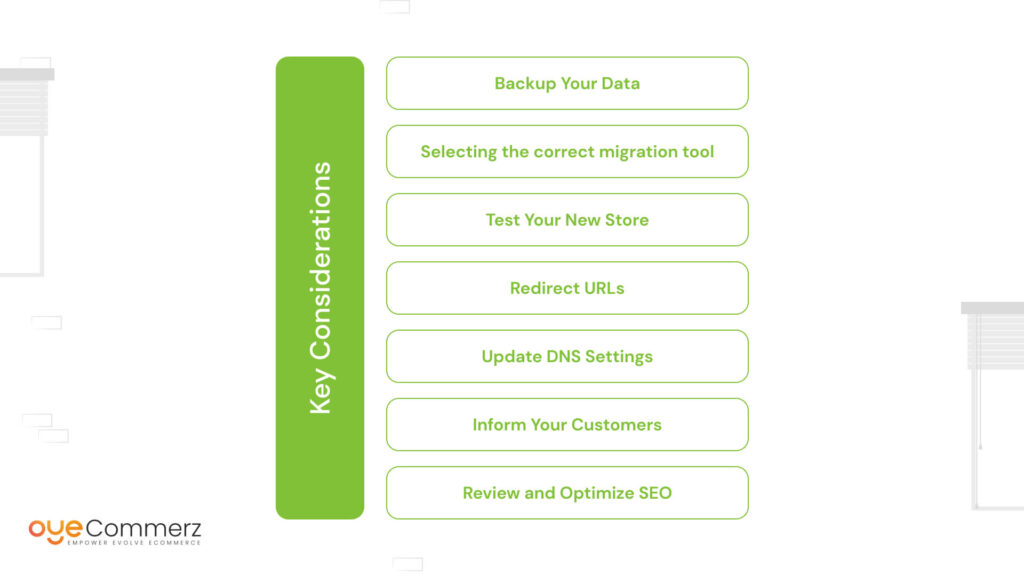In the dynamic landscape of digital commerce, selecting the optimal system is vital for your business's prosperity. If you’re at the moment using WP and considering a migration to an alternative, you’re not alone. Many businesses are switching to leverage Shopify’s powerful features, simplicity, and growth potential. This guide will take you through the steps of migrating from WordPress to Shopify smoothly, making sure that you unlock your eCommerce potential.
Why Switch from WP to Shopify?
Prior to starting the migration process, it’s important to realize why this transition can be helpful for your eCommerce business:
Accessible Tools: Shopify provides an user-friendly dashboard that makes easier store management, allowing for non-technical users.
Flexibility: As your company develops, Shopify can accommodate greater traffic and transactions without sacrificing speed.
Built-in Tools: Shopify comes with pre-installed tools for SEO, analytics, payment handling, and additional functionalities, minimizing the need for multiple plugins.
Robust Protection: With Shopify, you utilize advanced security protocols that safeguard confidential customer information.
Steps for a Smooth Migration
Migrating your digital shop from WP to Shopify involves key steps.
Here’s how to achieve a hassle-free transition:
Plan Your Migration Approach
Begin by mapping out your migration strategy. Pinpoint which aspects of your current site you wish to migrate, such as:
Product data
Client data
Order history
Articles
Choose the Best Migration Option
Based on your preferences, select a migration package that fits your business. Migration experts delivers multiple choices:
Starter Package: Suitable for small stores with limited products.
Mid-Tier Plan: Appropriate for mid-range businesses with moderate demands.
Comprehensive Solution: Best for larger stores requiring custom customization.
Backup Your Information
Before starting the migration, make Shopify migration checklist sure that you have a full copy of your WP site. This action is crucial in situations where anything goes awry during the move.
Extract Your Content from WP
Leverage tools or alternative solutions to export essential data from your WordPress site:
Inventory
Customers
Transactions
Content pieces
Upload Information into Shopify
Once you have your content extracted, employ Shopify’s migration apps or external apps to upload your content into your updated store. Confirm that all information is accurately formatted and arranged.
Personalize Your Shopify Store
After importing data, customize your Shopify store’s layout to reflect with your brand identity. Look into hiring a developer if you require complex customization.
Establish Checkout Systems and Shipping Options
Set up transaction methods and delivery choices in Shopify to create a user-friendly checkout experience for customers.
Adopt SEO Standards
To preserve your search engine rankings during the transition:
Set up 301 redirects from old URLs to new ones.
Update meta tags.
Optimize images and content for SEO.
Test Your New Store
Ahead of publishing, extensively review your migrated store. Identify any discrepancies, payment processing issues, or missing data.
Go Live Your Platform
After everything is in ready, it’s the Shopify launch checklist opportunity to launch! Announce the transition to your clients and invite them to explore the enhanced features of your Shopify store.
Post-Migration Guidance
Following launching your updated store, regular help is key. Consider engaging service providers who can help with:
Troubleshooting
Promotional campaigns
Enhancing features
Conclusion
Migrating from WordPress to Shopify can be a transformative step for your online retail. By following this guide and working with professional services like those offered by dedicated providers, you can guarantee a effortless transition that improves your digital storefront. Embrace the shift and unlock the advantages of Shopify today!
